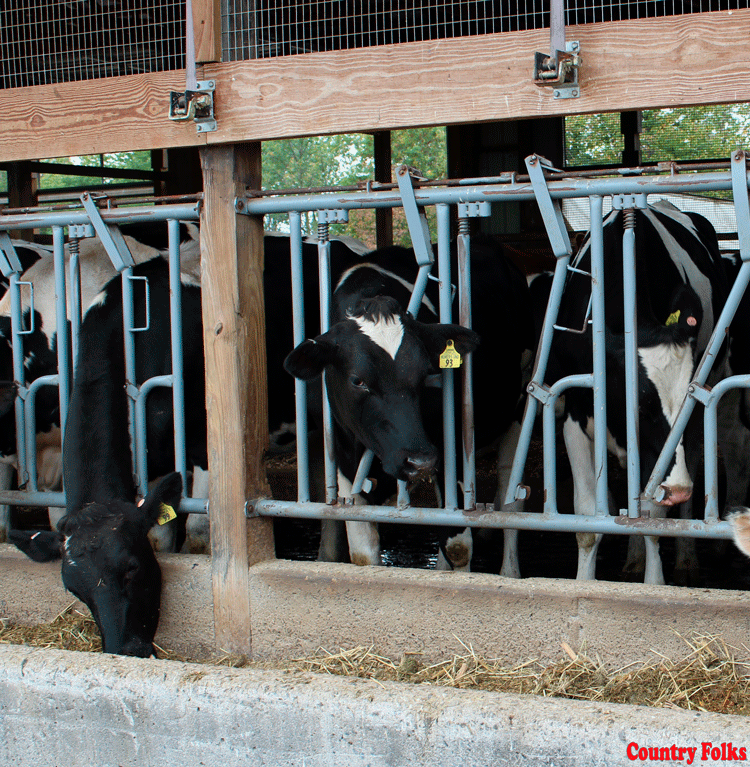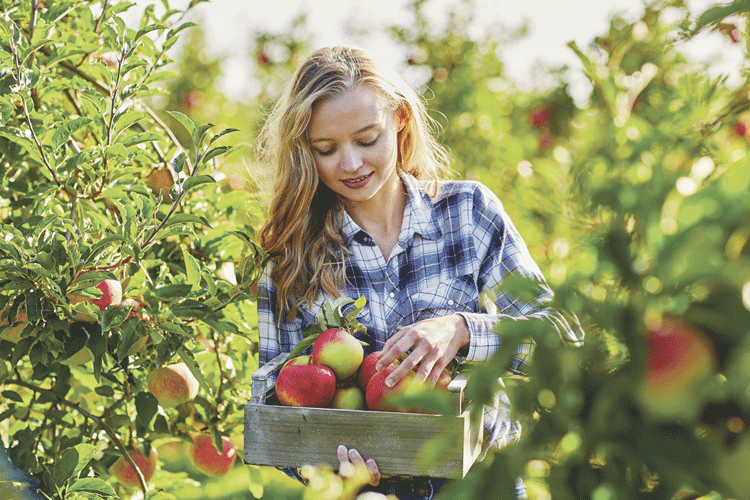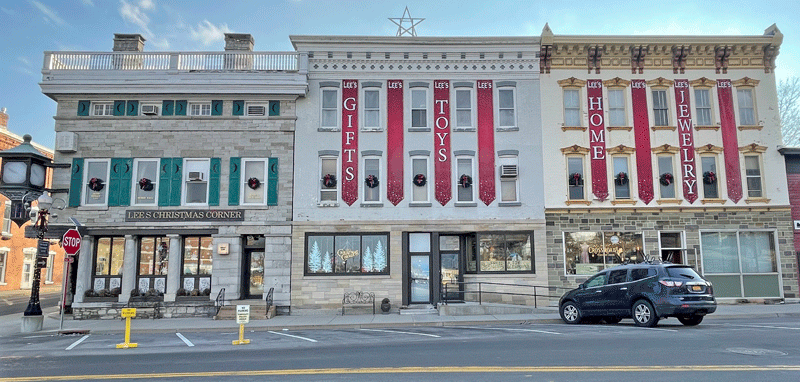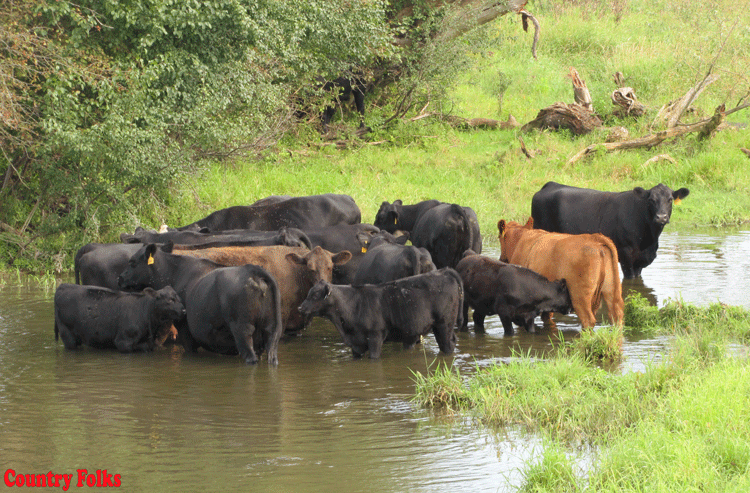 by Sally Colby
by Sally Colby
If you were going to cross the ocean on a ship to a new world and could only take one cow with you, what kind would you take? Patty Taylor, who farms with her husband Erick in Woodstock, CT, says, “You’re going to pick the cow that’s the hardiest, one that can tolerate temperature extremes and rough living conditions, fattens well on grass, and one that can provide milk and meat as well as be used for work.”
The animal that fits the bill is the Devon, which is also known as the Ruby Red Devon, Red Ruby or Milking Devon. Although the Taylors’ cattle are registered with American Milking Devon Cattle Association, Erick says that’s a misnomer. “There’s no such thing as an American Milking Devon,” he said. “They’re really North Devons.” Erick explains that a rift in the original breed registry resulted in two Devon registries: one for beef-type animals, and one for the traditional multi-purpose breed that he raises — Milking Devons.
Although Erick says his Devons may not gain in the same way as the beef-type Devons, the meat is superior quality, the cows produce an abundant supply of milk for their calves, and they can do it on grass alone. Right now, about 20 mature cows at Devon Point Farm are calving. The cows produce abundant milk through the summer, preparing calves for October weaning. Cattle, including weaned calves, are raised through winter solely on first-cut round bale hay that includes reed canarygrass, orchardgrass and white clover.
The farm includes 93 acres with additional acreage leased for grazing. About 60 acres of the farm are fenced for grazing with a combination of permanent and portable fence. Most of the fencing is five-strand high tensile barbed wire, which Erick says works well. Several miles of buried water lines provide ample water for pastured cattle. All of the fields have stands of trees that serve as shade and shelter for cattle. “The property was previously an apple orchard,” said Erick. “We left many of the trees standing so the cattle can graze around them, and they eat the apples that fall on the ground.” Pasture species include Kopu ll white clover and kura clover; both developed in New Zealand specifically for grazing. Pastures also include several varieties of orchardgrass and some perennial rye. Erick carefully manages pastures for both weed control and optimum grazing.
Erick says his Devon cows remain productive well into their late teens, and that one cow calved when she was 21 years old. Although he has been line breeding for several years, he’s in the process of obtaining a new bull for the herd. Heifers from the herd are retained for replacements, and some select young females are offered for sale.
Finished cattle are processed at a USDA facility, which allows the Taylors to sell meat directly from their farm. Ground beef is sold wholesale to restaurants, while retail customers can visit the on-farm store to purchase a half, sampler box or individual cuts.
In addition to raising Devon cattle, Erick and Patty maintain a 200-member CSA vegetable program with 12 acres of the farm devoted to raising vegetables for shares. “We ran the numbers, and the only way we could do it was to start out with 100 members the first year,” said Patty, noting that this is the fourth season for their CSA. “We had 205 shares last year.” Rather than having CSA customers help in the fields to help pay for their share, the Taylors have found that it’s better to use apprentices who will devote an entire season to learning about food production.
Devon Point Farm also offers a farm day camp for ages four to 12. Young children come for a half-day program, and older kids come for a full day. “Each day has a different theme,” said Patty. “They learn about seed starting, then go to the vegetable field and learn about growing vegetables. They also learn about soil and composting, and about barnyard animals.” Patty explained the day camp is planned around themes, with repeated messages within the themes. “We try to emphasize respect and responsibility in taking care of animals,” she said. “We also teach them where food comes from.” Patty says the education effort helps parents learn along with their children.
Erick notes that CSA customers are not always the same as those who come to the farm to purchase meat. “I think that’s because CSA customers are women, and they do most of the shopping and buying,” he said. “They’re trying to buy more vegetables for their families, while the typical steak eater is probably a male.”
As he talked about the farm, Erick commented that adding cattle was the best decision they’ve made. “I believe it has everything to do with the breed we chose,” he said. “The market is wide and deep — from museums to estate owners to oxen owners. It’s an opportunity breed.”
Visit Devon Point Farm online at www.devonpointfarm.com.









Leave A Comment